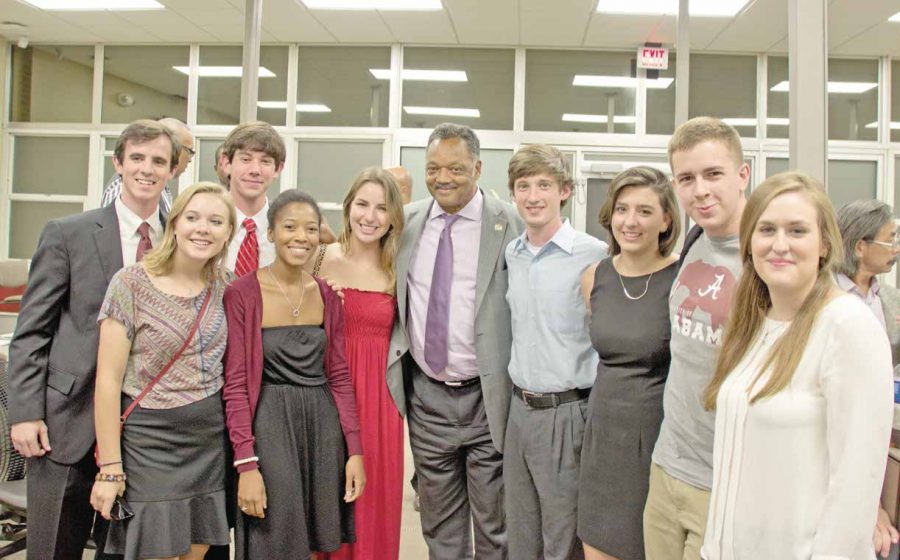The Student Press Law Center and the Associated College Press have chosen three staff members of The Crimson White as the joint recipients of the 2013 College Press Freedom Award for the September article detailing discrimination in the recruitment process of The University of Alabama’s traditionally white sororities.
Editor-in-Chief Mazie Bryant and the two reporters, Abbey Crain and Matt Ford, who wrote the story, “The Final Barrier,” will accept the award Saturday at the National College Media Convention in New Orleans, La.
The College Press Freedom Award was created in 1984 by the Student Press Law Center in order to recognize exemplary journalism in high school or college newspapers that deals with complex and controversial issues, Frank LoMonte, executive director of the SPLC, said. Since 1992, separate awards have been given for high school papers and college papers.
The winner of the award is chosen in a collaboration of the SPLC, the ACP and Manship School of Mass Communication at Louisiana State University, which sponsors the award. LoMonte said this year’s choice was easy.
“In this instance, it was honestly kind of a no-brainer,” LoMonte said. “As soon as the story came out and we recognized the impact it was having, we knew right away that it was the stand-out. It perfectly captured the combination of the two values that we most want to recognize: excellent, quality journalism and a willingness to take on powerful institutions.”
The SPLC is a resource for high school and college newspapers that provides information about the legal rights of journalists and supports students news outlets in covering controversial and important issues.
“The Student Press Law Center is an advocate for the First Amendment rights of journalists and works with journalists trying to help them do more substantive, investigative journalism,” LoMonte said.
LoMonte said the work of Crain and Ford was a perfect example of the type of work that the SPLC and the Freedom Award promote. LoMonte said the reporters and staff of The Crimson White showed bravery and resolve in the reporting of discrimination in the University’s greek system.
“The greek system at so many campuses is extremely powerful and extremely popular and extremely hard to cover, and to be able to get around the historical difficulties, especially at an institution like Alabama, where we knew that this story would take on explosive national proportions, took a lot of guts,” LoMonte said. “It would have been really easy to decide that this story was too hot to handle or that the blowback would be too intense, but to the credit of the staff, nobody ever retreated in the face of criticism.”
The aspect that sets the article above the rest, LoMonte said, is the quality and accuracy of the reporting.
“What’s especially noteworthy is that despite all the people who would like to pick apart this story, nobody has been able to disprove it,” LoMonte said. “You know, people can say that they’d rather that they had kept this information under wraps, but nobody can say it’s false.”









